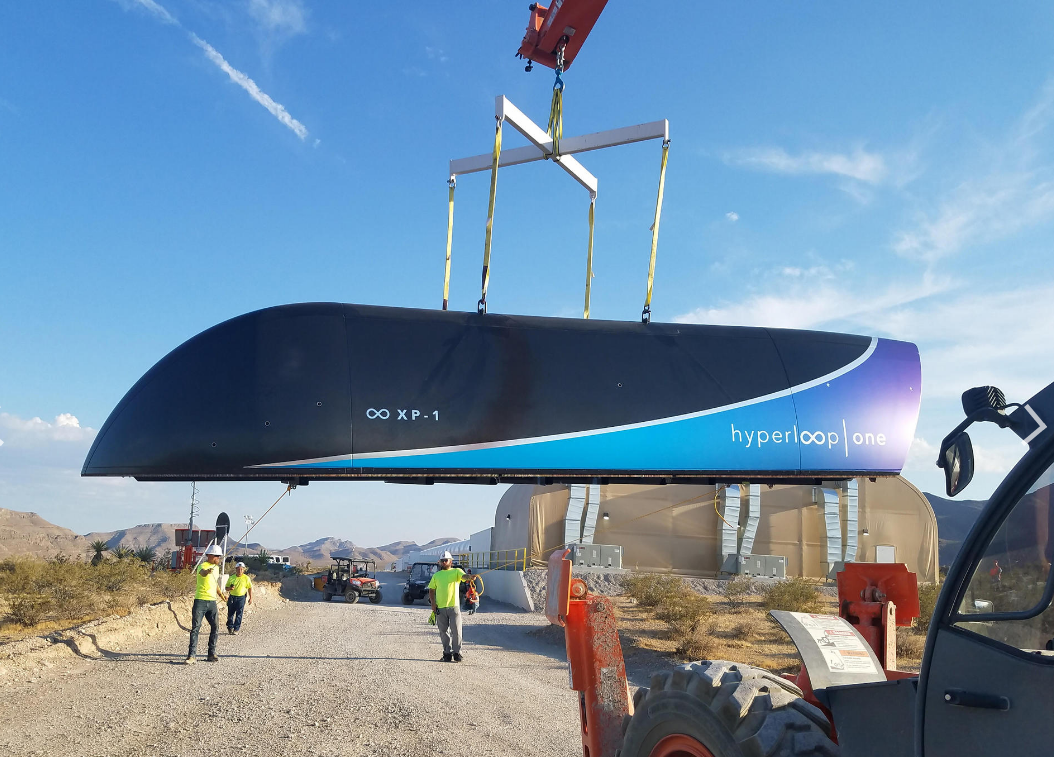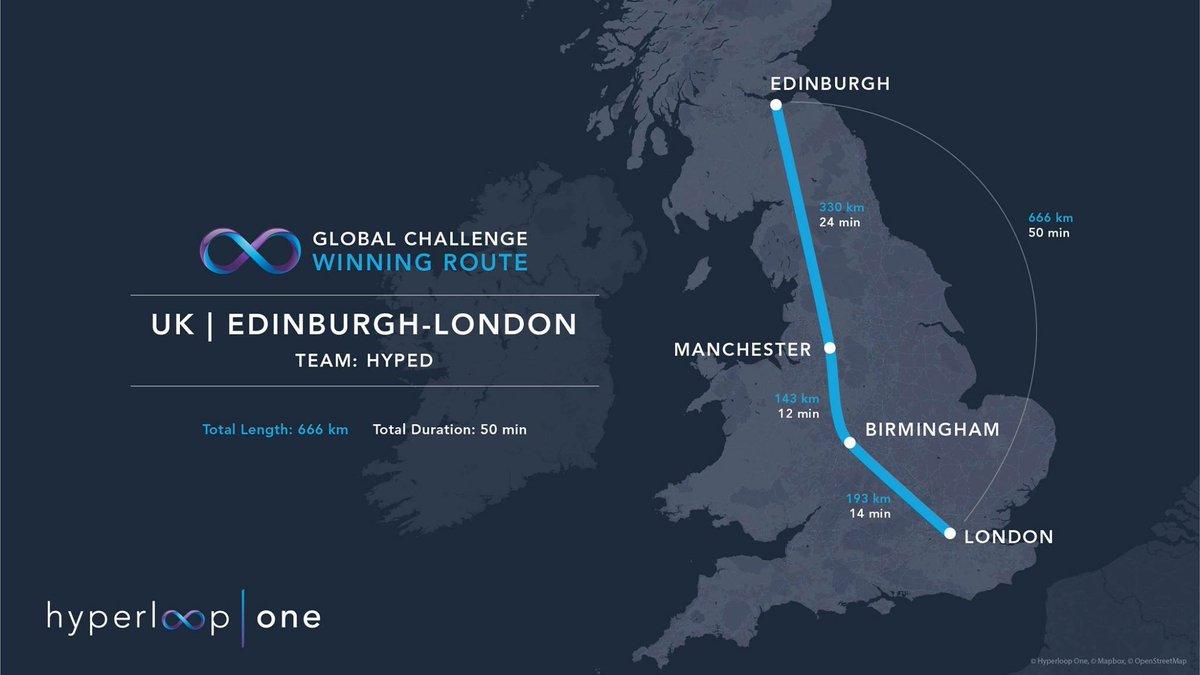Hyperloop: The 1,000 kph race to realize Elon Musk’s improbable dream heats up in the Middle East
As two companies compete to complete the world's first commercial hyperloop, one stretch of desert holds the key to realising Elon Musk's vision for a new mode of transport
In July 2012, shortly after describing how he once totaled a McLaren F1 supercar, Elon Musk explained that he had an idea for a new way of travelling. “Right now we’ve got planes, trains, automobiles and boats,” the billionaire founder of Paypal said in front of a crowd in California. “But what if there was a fifth mode? I have a name for it: the Hyperloop.”
Mr Musk’s description of pods filled with people shooting through vacuum tubes at more than 1,000 kilometres per hour seemed like something out of the Jetsons, but it was clear it could revolutionise the way people travelled. Richard Branson, for instance, has claimed that it could take people from London to Scotland in 45 minutes.
But almost as remarkable as his Hyperloop idea was what Mr Musk said next: he didn't have time to develop the technology, since he was already splitting his time running his electric car firm Tesla and his rocket startup SpaceX. Instead, he said he would make the idea available to anyone who wanted to develop it.
Six years later two companies claim to be on the verge of realizing it. Hyperloop Transportation Technologies (HyperloopTT) and Virgin Hyperloop One have both recently revealed partnerships and plans that could see the first commercial system opened within the next three years.
The race to deliver the futuristic mode of transport is most intense along a 100 km stretch of desert separating Abu Dhabi and Dubai in the United Arab Emirates. Both companies have staked a claim to this route, with Hyperloop Transportation Technologies announcing this week plans to build a 10 km track on the border between the two states in time for Expo 2020.
“This track is important for the future of hyperloop,” Dirk Ahlborn, CEO of HyperloopTT, told The Independent. “Once the UAE route is completed, other hyperloop networks around the world will be quick to follow, as the technology will already be there.”
Mr Ahlborn says his company already has agreements in place for hyperloop route studies in seven other countries: Czech Republic, France, India, Indonesia, Slovakia, South Korea and the United States. He expects to add more countries to the list as interest in the technology continues to increase.
In comparison, Virgin Hyperloop One is currently working with four countries — India, Saudi Arabia, UAE and the US — and is aiming to have the first phase of a commercial system built by 2021. Despite this slower timeline, the company backed by Richard Branson claims to be leading the way.
“It’s not a race, but if it were we are in the lead,” Rob Lloyd, CEO of Virgin Hyperloop One, told The Independent. “We are the only company in the world to have successfully tested all components of the system at our full-scale, full-system, test site in Nevada… [HyperloopTT] is only just starting to build their first test track now. This puts us roughly two years ahead.”

Mr Ahlborn, who refers to his company as “the mother of the hyperloop movement,” has been known to be overly optimistic about his forecasts in the past. In 2015, he put forward his utopic vision for future living in a new, hyperloop-connected city midway between Los Angeles and San Francisco.
Quay Valley was meant to be a model for 21st Century living, with construction set to start in 2016. However, two years after Mr Ahlborn’s promise to deliver a hyperloop by 2018, planning permission issues saw the development terminated.
This failure highlighted how it is not simply a matter of figuring out the technology and building a track. Regulation remains one of the core challenges facing both companies, with California particularly tricky when it comes to navigate local laws and landowners.
This is one of the reasons why the UAE is such an attractive prospect for both hyperloop companies, according to Richard Geddes, a professor of policy at Cornell University and co-founder of the Hyperloop Advanced Research Partnership (HARP).
“Not only does the country boast vast wealth and a relatively flat landscape, the nature of the government means big projects can be implemented quickly and efficiently,” Professor Geddes told The Independent.
This doesn’t mean that other countries won’t one day benefit from a system Mr Musk described as “a cross between a Concorde, a railgun, and an air hockey table,” though the timeframe for delivering it to somewhere like the UK stretches into the decades. Such a delay hasn’t stopped people comparing hyperloop’s potential benefits with the pitfalls of current infrastructure projects like the HS2 high-speed railway.
In a newspaper column this week, former Conservative Transport Minister Steve Norris speculated what a Hyperloop system could bring to the UK. “It could connect Gatwick and Heathrow so that they operated as one super-hub airport,” Norris wrote. “It could link London to Glasgow faster than HS2. It could unlock the Northern Powerhouse.”

Both companies leading the way in hyperloop’s development see no reason why the new mode of transport couldn’t integrate with existing city transportation frameworks, such as airports and rail networks. And while the companies are not working directly with each other to develop the technology, each says that it is committed to an open standard approach to make the interconnectivity of routes built by their competitor possible.
For hyperloop to actually become a fifth mode of transport, and not just a fragmented ecosystem of competing transport companies, this cooperation is essential.
“Hyperloop has a number of incredible benefits as a new mode of transport, including energy usage, speed and safety — and it’s not just hype. There’s too many smart people working on it and too much capital behind it for it to not be realised,” said Professor Geddes.
“I’m very optimistic that we’re on the verge of a new mode of transport — the first in 100 years. Of all the innovations that we’re seeing in transportation, such as driverless cars, the hyperloop certainly holds the most promise.”
It is not the first time a novel method of transport has elicited such praise. In August 1830, the actress Fanny Kemble described her first trip aboard a steam train with disbelief: “You can’t imagine how strange it seemed to be journeying on thus, without any visible cause of progress other than the magical machine.”
Within a month, amazement had soured to suspicion and uncertainty about the new technology, after a member of parliament was killed by a passing train at the opening of the world’s first commercial railway between Liverpool and Manchester.
It may be several years before we see a hyperloop system carrying its first passengers, but it already faces significant criticism. Transport blogger Alon Levy, who wrote a widely shared blog criticising Musk’s original Hyperloop idea, has described hyperloop in various posts as “a barf ride” that displays “indifference to civil engineering costs.”

It will be in the desert separating Abu Dhabi and Dubai where we will find out if these challenges can be met. If they can then the implications, like Mr Musk’s original comments, could precede a profound shift in the way we view travel.
“We believe hyperloop is the new mode of transportation built for the next century,” Mr Lloyd said. “A growing global economy requires faster, cheaper, safer and more efficient transportation modes.
“Besides, we haven’t had a major new form of transport in 100 years — we’re due for one.”
Join our commenting forum
Join thought-provoking conversations, follow other Independent readers and see their replies
Comments
Bookmark popover
Removed from bookmarks